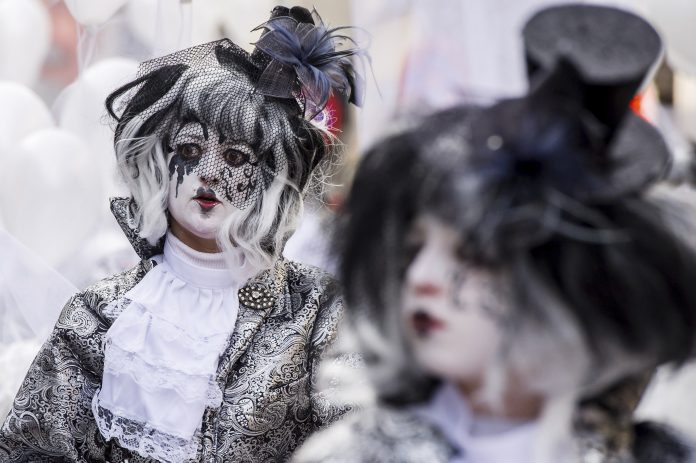
The famed Belgian Carnival town of Aalst wants to renounce its place on the U.N. cultural heritage list, saying it is sick of widespread complaints that this spring’s edition contained blatant anti-Semitism.
Town officials say the float objected to, with stereotypical depictions of hook-nosed Jews sitting on piles of money, was trying to make a joke and they contend no one should try to muzzle humor of any kind during the three-day Carnival.
Aalst mayor Christoph D’Haese said Sunday that city officials “have had it a bit with the grotesque complaints and Aalst will renounce its UNESCO recognition.”
UNESCO, Jewish groups and the European Union have condemned the float as anti-Semitic, with the EU saying it conjured up visions of the 1930s.
UNESCO already was planning to consider at its Dec. 9-14 meeting in Bogota, Colombia, whether to kick Aalst off the list of Intangible Cultural Heritage.
“It was clear that we had to go, so we kept the honor to ourselves,” D’Haese told VTM network.
Aalst is one of Europe’s most famous Carnivals and it is a celebration of unbridled, no-holds-barred humor and satire. Politicians, religious leaders and the rich and famous are relentlessly ridiculed during the three-day festival ahead of Roman Catholic Lent.
Imposing limits on that would take away the essence of the town’s Carnival, said D’Haese, who has seen revelers impersonating leaders of his Flemish nationalist N-VA party leadership go around in Nazi uniforms.
For him, it is the be-all, end-all of Aalst Carnival, in which a laugh trumps ethical concerns. The parade of floats draws some 100,000 visitors every year to the city close to Brussels. Most often it goes off without a hitch.
After the outrage in early March, D’Haese claimed city elders reached out to Belgium’s “anti-discrimination center and several Jewish organizations, for whom it will never be enough.”
Hans Knoop of the Belgian Forum of Jewish Organizations told The Associated Press that the mayor had not been cooperative in discussing the issue.
And Knoop warned that renouncing the UNESCO cultural heritage tag should not open the way for more similar displays at the festival in late February.
“They are not at liberty to spew any more anti-Semitic dirt,” he said. “We will keep a close eye on Aalst.”
He insisted there are merry Carnivals around the world without a hint of racism or anti-Semitism.
D’Haese said it would be “unavoidable” that there would be Jewish ridicule at the next edition. He has said it was not for him to police humor.
“We are on a very dangerous slippery slope when people will be able to decide what can be laughed at,” he said.
A decision by UNESCO to remove Aalst would be a first since the 2003 convention that created the cultural heritage label.
The Aalst Carnival has been on the list since 2010.
Now, D’Haese said, “I want to give Aalst Carnival back to Aalst.”



















